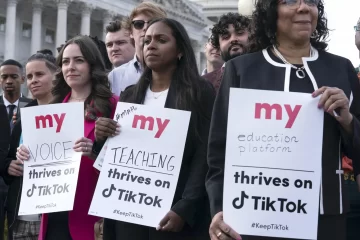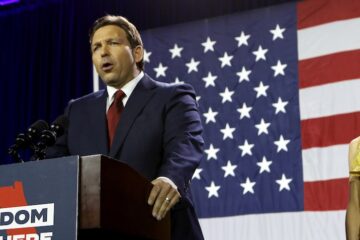When I was 12-years-old, politics was fantastic, idealistic and uplifting.
The year is 2008, and I vividly remember the tangible excitement around school as Obama edged closer and closer to the presidency: the famous “Change” posters plastered all over the classroom walls, the “Yes We Can” slogan being chanted at sports games, the teacher replaying his speeches as examples of exemplary public speaking. I remember spending break times crowded around laptops watching Youtube videos about the election – especially the “Crush on Obama” video which was particularly popular amongst the guys.
It was an exciting time, though I was still a kid and not actually in the United States. But it wasn’t just me who was keenly following the story unfurling halfway across the world. In Berlin, more than 200,000 people showed up to hear Obama speak in front of the iconic Brandenburg Gate, many of them students and children, in pomp and circumstance befitting of a global rock star. Across Africa but especially in Kenya, the homeland of Obama’s father, viewing parties were organised for each presidential debate. Obamamania captured the imaginations of people all over the world.

Most people I’ve spoken to can recount with detail where they were and what it was like when Obama was making his way towards the Oval Office, even if they were only a child like I was. That’s because the story of Obama’s 2008 campaign was not just an American one – it was global and its appeal defied cultural and national boundaries, much of it having to do with the transcending qualities of Obama himself. An African-American born to a Kenyan father and raised by a single mother, with the name Barack Hussein Obama was about to become the first black President of the most powerful country in the world – you didn’t need to be American to understand the momentousness of the moment.
What’s more, young people particularly were engaged in this American presidential election like no other one before. One reason for this was the impact of social media on what some called the “Facebook election”, marking the first time in history where social media was firmly integrated into politicians’ campaign strategies. The Obama campaign’s masterful exploitation of the opportunities made available by social media represented the establishing of a new frontier in politics and democracy, where people felt empowered by technology which seemed to reserve them a front-seat in the grand project to better their country and the world. The nature of the internet meant that the nature of Obama’s campaign was the same: unconstrained and global.
The messages of hope and change were especially appealing to young people, naturally idealistic, who invested themselves fully into the affirmation of Yes We Can as they vowed to right the wrongs of the old guard – whether it be the unilateralism of the Bush administration or the partisanship of the political class. Obama epitomised the best qualities of politics as well as the promise of politics to better our world, his speeches stirring the idealism and optimism within young people through appeals to togetherness and unity.
The precariousness of idealism
Looking back now as an LSE student, it seems highly unlikely that this experience I had as a 12-year-old did not contribute in any way to the nurturing of the passions I have come to possess today for politics and public service. After all, President Obama’s tenure as leading statesman of the world has largely corresponded with my formative years, him being the first real President of the United States of my life (in the sense of actually being engaged with politics). Assuming that I wasn’t the only one inspired by him, I would bet that his sketch of the ideal of a politics that is hopeful and kind throughout his presidency has played a role in influencing many young people today to want to get involved in politics and public service. I certainly was.
Eight years later, it is somewhat fitting that Obama’s presidency comes to an end at a time when I too feel like a significant portion of my life – my childhood – is also drawing to a close. But perhaps what is even more fitting is that my adult life will commence alongside the presidency of Obama’s successor, someone diametrically opposed to the sort of values Obama espoused which propelled him to the presidency (as if the end of my childhood wasn’t bad enough).
Can two successive presidents be any more different? Consider how the two announced themselves to the American people and their differing rhetoric. Whereas Obama proclaimed a unifying message based on the dismissal of the notion of a “liberal America and a conservative America” in his keynote speech at the 2004 Democratic Convention, Trump called Mexican immigrants “rapists” in his infamous announcement speech at Trump Tower. The former President’s campaign was built around unifying the country and defying political and racial dividing lines; the current President got to the Oval Office exploiting and exacerbating them.
They say that as you get older, you become less idealistic. In many ways, Trump’s election win symbolises a stark wake-up call from the honeymoon period of my life where politics was romanticised and viewed with starry-eyes. If the 2016 election as well as all that has happened in the past year should tell us anything, it is that politics can be ugly, absurd and, at times, downright depressing.
Social media typifies how quickly things have changed, going from being celebrated as an engine for political change in the 2008 election to now being indicted as a viable threat to democracy. The terms “echo chamber”, “fake news” and, most recently, “alternative facts” have percolated into our lexicons and now dominate assessments of the problematic role that social media plays in our politics today.
The danger of cynicism
It seems that the “change” Obama promised has certainly occurred, but not in a way that many would say is good: the country is more divided than ever, the politicians more partisan, the parties more polarised and the discourse more insufferable. And that’s just America – things aren’t much better elsewhere in the world.
That is not to say however that the values espoused by Obama during his tenure of a kind of politics that is inclusive and tolerant are in any way invalid or naive. As Obama himself put it in one of his last interviews as president, his promises of hope and change were always meant to be aspirational: “not a perfect description of what is but a description of our best selves and who we might be”.
We must take heed of those words and understand that aspirations are not prophecies. Merely hoping does not mean that those hopes will be realised as nothing is guaranteed in a democracy – everything has to be fought for. That certainly is true of the women’s suffrage movement, the civil rights movement, the gay rights movement and other examples of momentous change that has come about in the history of the country.
Trump’s victory tells us that even our most cherished values are fragile and tenuous, and so one cannot be complacent in assuming that the rightness of their causes will automatically mean that they will prevail. This means actually engaging with those who disagree and not merely abuse them. This means getting involved in the democratic process to try to bring about a return to the positive politics that was only so recently present in the country. Ultimately, it means not being cynical about the potential of politics to bring about good, meaningful change because the politics that inspired me as a kid was idealistic and hopeful – we must work towards ensuring that the politics of today is the same.


